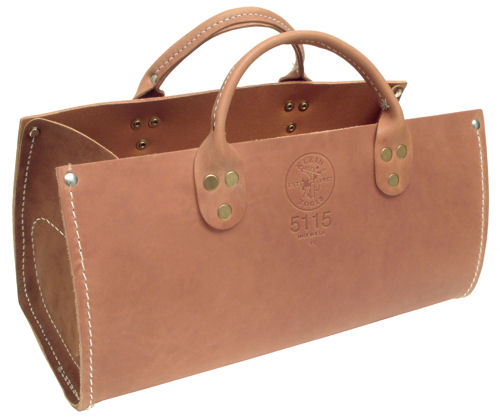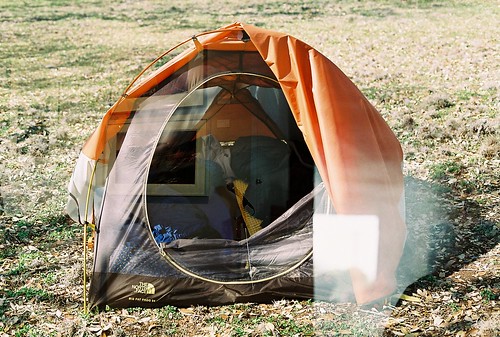Leather:
 Canvas:
Canvas:
 Also new discovery: Beckel Canvas bags! Thick canvas with leather reinforcements. Great names, like War Bag and Possibilties Bag. Now I'm sad that I went out and impulse bought a small AA duffle for traveling this weekend.
Also new discovery: Beckel Canvas bags! Thick canvas with leather reinforcements. Great names, like War Bag and Possibilties Bag. Now I'm sad that I went out and impulse bought a small AA duffle for traveling this weekend.
 Canvas:
Canvas:
 Also new discovery: Beckel Canvas bags! Thick canvas with leather reinforcements. Great names, like War Bag and Possibilties Bag. Now I'm sad that I went out and impulse bought a small AA duffle for traveling this weekend.
Also new discovery: Beckel Canvas bags! Thick canvas with leather reinforcements. Great names, like War Bag and Possibilties Bag. Now I'm sad that I went out and impulse bought a small AA duffle for traveling this weekend.
 Australian Bag Outfitters Bushman Angler bag - $76.95 (orig $130). See AC's post on fishing bags
Australian Bag Outfitters Bushman Angler bag - $76.95 (orig $130). See AC's post on fishing bags Australian Bag Outfitters Brumby Duffle bag - $99.95 (orig $170)
Australian Bag Outfitters Brumby Duffle bag - $99.95 (orig $170) Bric's Cargo Duffel Bag - $170.95 (orig $345)
Bric's Cargo Duffel Bag - $170.95 (orig $345) Sandstorm Kenya Canvas and Cowhide Laikipia bag - $169.96 (orig $290)
Sandstorm Kenya Canvas and Cowhide Laikipia bag - $169.96 (orig $290) Sandstorm Kenya Canvas and Cowhide Explorer bag - $199.95 (orig $340)
Sandstorm Kenya Canvas and Cowhide Explorer bag - $199.95 (orig $340)

 Sorta look like 90's Doc Martin's eh? Often imitated, but can never beat!
Sorta look like 90's Doc Martin's eh? Often imitated, but can never beat!

VICTOR HUGO, Les Misérables
Life is never boring but some people choose to be bored. The concept of boredom entails an inability to use up present moments in a personally fulfilling way. Boredom is a choice; something you visit upon yourself, and it is another of those self-defeating items that you can eliminate from your life.
WAYNE W. DYER, Your Erroneous Zones
I am convinced that boredom is one of the greatest tortures. If I were to imagine Hell, it would be the place where you were continually bored.
ERICH FROMM, The Dogma of Christ
Boredom is the self being stuffed with itself.
WALKER PERCY, Lost in the Cosmos



 Another time, I went with Rachel and Kristi to a small camp spot of Travis Lake, past the quaint boating town of Volente. We did primitive camping, but had a nice fire going. As we arrived at dusk, the view of the silent lake was gorgeous in the dying light. Another time a big group of us girls went to Pace Bend (Me, Rachel, Kristi, Erin, Jennifer) and had a great cookout. Rachel had her first cigarillo, and her and I woke up in the middle of the night because it was raining and we covered everyone's things. We were going to make pancakes for breakfast, but when we woke up, we saw that raccoons had ransacked our bags of food we stupidly left out. It was still sort of funny. The earliest camping trip I remember was with Sara (now married and living in St. Louis) and Courtney. We went to Muleshoe Bend and they drank whiskey in lieu of dinner. I had no idea where any of these campsites were when we went, as I didn't plan or drive, so each time I relished being in the unfamiliar hillcountry and the mystery of never really knowing where I was.
Another time, I went with Rachel and Kristi to a small camp spot of Travis Lake, past the quaint boating town of Volente. We did primitive camping, but had a nice fire going. As we arrived at dusk, the view of the silent lake was gorgeous in the dying light. Another time a big group of us girls went to Pace Bend (Me, Rachel, Kristi, Erin, Jennifer) and had a great cookout. Rachel had her first cigarillo, and her and I woke up in the middle of the night because it was raining and we covered everyone's things. We were going to make pancakes for breakfast, but when we woke up, we saw that raccoons had ransacked our bags of food we stupidly left out. It was still sort of funny. The earliest camping trip I remember was with Sara (now married and living in St. Louis) and Courtney. We went to Muleshoe Bend and they drank whiskey in lieu of dinner. I had no idea where any of these campsites were when we went, as I didn't plan or drive, so each time I relished being in the unfamiliar hillcountry and the mystery of never really knowing where I was.




The kingdom of heaven promised us certain things: it promised us happiness and a sense of purpose and a sense of having a place in the universe, of having a role and a destiny that were noble and splendid; and so we were connected to things. We were not alienated. But now that, for me anyway, the King is dead, I find that I still need these things that heaven promised, and I’m not willing to live without them. I don’t think I will continue to live after I’m dead, so if I am to achieve these things I must try to bring them about – and encourage other people to bring them about – on earth, in a republic in which we are all free and equal – and responsible – citizens.
Now, what does this involve? It involves all the best qualities of things. We mustn’t shut anything out. If the Church has told us, for example, that forgiving our enemies is good, and if that seems to be a good thing to do, we must do it. If, on the other hand, those who struggled against the Church have shown us that free enquiry and unfettered scientific exploration is good – and I believe that they have – then we must hold this up as a good as well.
Whatever we can find that we feel to be good – and not just feel but can see with the accumulated wisdom that we have as we grow up, and read about history and learn from our own experiences and so on – wherever they come from, and whoever taught them in the first place, let’s use them and do whatever we can do to make the world a little bit better.
..
I’m amazed by the gall of Christians. You think that nobody can possibly be decent unless they’ve got the idea from God or something. Absolute bloody rubbish! Isn’t it your experience that there are plenty of people in the world who don’t believe who are very good, decent people?
Yes. I’m just curious to know where it comes from.
For goodness’ sake! It comes from ordinary human decency. It comes from accumulated human wisdom – which includes the wisdom of such figures as Jesus Christ. Jesus, like many of the founders of great religions, was a moral genius, and he set out a number of things very clearly in the Gospels which if we all lived by them we’d all do much better. What a pity the Church doesn’t listen to him!
 This cool embossed edition only available at Book People, I've found.
This cool embossed edition only available at Book People, I've found.